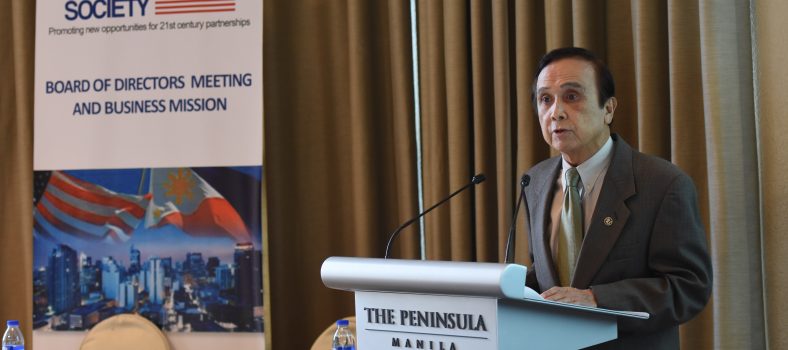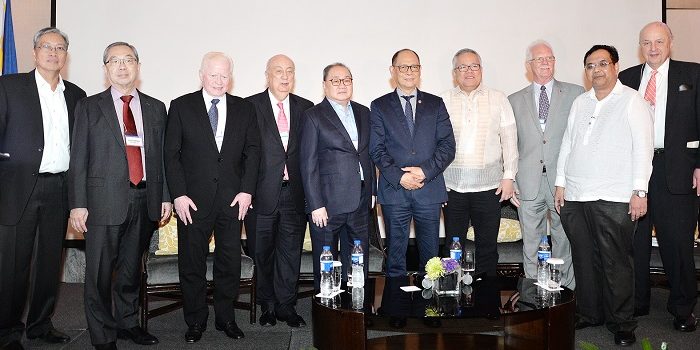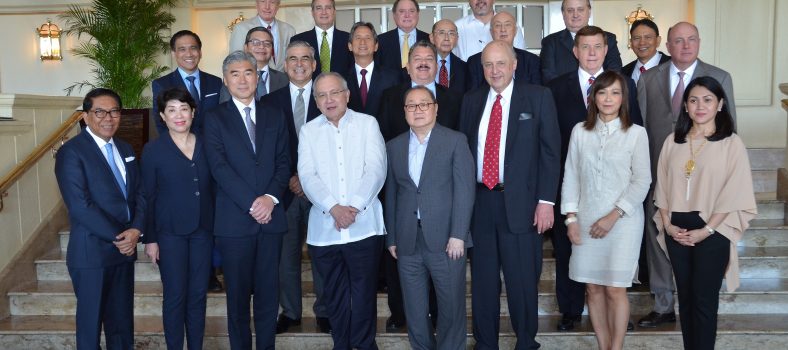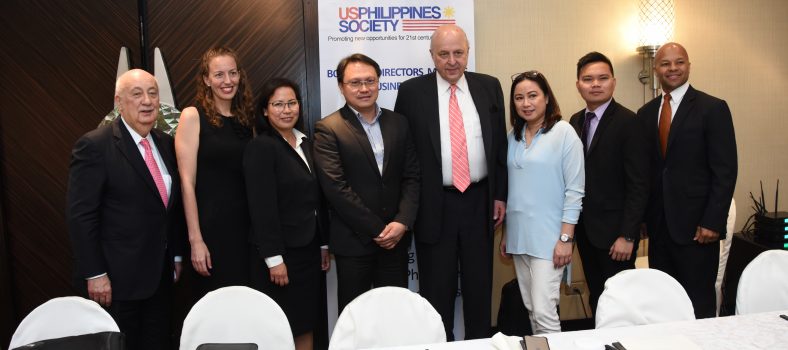DBM Secretary Diokno Highlights Country’s Economic Blueprint in the US-Philippines Society Policy Forum
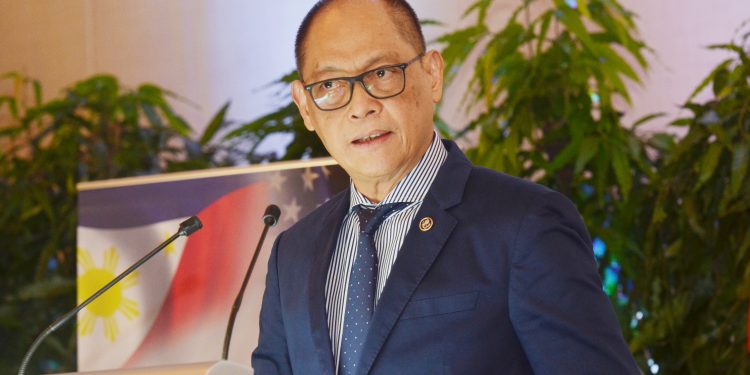
“Our vision is to have an economy that not only grows, but also distributes wealth across all sectors of society, particularly the poor and the marginalized,” Budget Secretary Benjamin Diokno emphasized as he presented pertinent details of the administration’s economic plan at the US-Philippines Society Economic Policy Forum, held on February 20, 2018 at the Manila Peninsula Hotel in Makati.
Secretary Diokno stressed that this government is committed to the pursuit of real change, and given so, all economic policies are anchored towards the goal of inclusive development.
“In line with our commitment to promote rapid, sustained and inclusive growth, we aim to achieve GDP growth of 7 to 8 percent in the medium-term, and reduce poverty to 14 percent from 21.6 percent in 2015. By the time we step down, we envision the Philippine economy to be in upper-middle income territory,” Sec. Diokno discussed.
In order to achieve these lofty goals, the country currently embarks on an expansionary fiscal policy where the fiscal deficit was increased from 2 to 3 percent of GDP. This was put in place so as to provide the government with more fiscal space.
Additionally, the country’s borrowings will have an 80-20 mix, in favor of domestic borrowing.
“This financing mix is designed to minimize our exposure to foreign exchange fluctuations and enable us to better manage our debts,” Sec. Diokno explained.
“Despite the deficit trajectory, our budget strategy is sound, appropriate, and sustainable. The debt-to-GDP ratio is expected to contract from 42.1% in 2017 to 37.9% in 2022,” he added.
The Budget Chief also presented the two spending priorities of the administration: infrastructure and human capital development.
He noted important numbers with regards to infrastructure and social services budget, “For FY 2018, infrastructure spending is pegged at P1.06 trillion, equivalent to 6.1% of GDP and is higher by 24.5% compared to the 2017 budget.” The annual infrastructure spending will be increased, reaching as much as 7.3 percent of GDP in 2022.
“The Social Services sector (education, health care, social protection, among other things) continues to get the lion’s share in the FY 2018 National Budget with P1.42 trillion, a 37.8% share in the overall budget”, Sec. Diokno added.
The Budget Secretary also mentioned that the major infrastructure projects lined up for 2018 are the Metro Manila Subway Project (MMSP), the Clark International Airport Expansion Project, and the Mindanao Railway Project.
Lastly, DBM Sec. Diokno talked about the Budget Reform Bill, a landmark bill that seeks to improve the budget process, “We will continue to ensure smart and efficient spending. And we will continue to guard against underspending.” The Budget Reform Bill will mandate a budget system that is cash-based, instead of obligation-based.
“Obligations are intentions, not expenditures. An annual cash-based budget will limit the time horizon of delivery and payment for goods and services appropriated in the budget to just one fiscal year,” Sec. Diokno emphasized.

